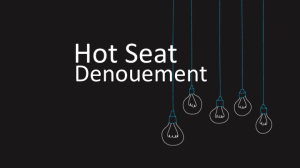Hot Seat #62 Denouement: 4 mos M p/w abscess requiring I&D
Posted on: October 8, 2015, by : Evan Sherman
by Lenore Jarvis, Children’s National
with Jennifer Chapman, Children’s National
The Case
4mo FT previously healthy M presenting as a referral from PMD due to concerns for axillary abscess with need for I&D. The challenge of this case was how to appropriately address and balance parental concerns with needed medical care of an infant.
Here’s How You Answered Our Questions
Denouement
The risks/benefits/concerns of varied treatments were discussed at length with the mother by multiple ED and surgery physicians and SW. Due to personal and religious reasons, the mom continued to refuse I&D and admission. A decision was finally made to allow discharge home with ED follow-up in the morning. A reliable phone number was taken from the mother, and she was informed that police would go to her home if she did not return for a recheck. The patient was added to the “patient follow-up list.” The follow-up PA and SW for the next day were informed. The PMD was also updated of the plan.
The next day, the mother did not show up in the morning. She was called by the PA, and in the early evening came to the ED. Surgery saw the patient in the ED. Eventually, an I&D was performed by Surgery under ketamine sedation. The patient was discharged home on Bactrim with outpatient Surgical follow-up.
Teaching Points
When parents refuse care for their children, it is much easier to reach a compromise if you understand the rationale behind their decisions. Additionally, when consult services are involved for a difficult case like this one, it is important to explain the background situation to the consultant before they see the patient so that all providers can present a unified plan of care.
Calling CPS and signing AMA paperwork can be used as a last resort. However, for patients whose condition puts them at high risk for morbidity or mortality, discharging against medical advice is neither ethical nor legal, and the provider can still be held accountable for a poor outcome. For cases like this one, where a compromise can be reached that does not put the patient in significant danger, discharge is usually preferable to leaving AMA (with thorough documentation of the discussion, medical decision making, plan of care, and return precautions). Additionally, our group was surprised to learn that when a patient or parent signs out AMA, insurance will usually still pay for the visit!
